Can you picture waking up to the sound of roosters crowing, with lush greenery all around and the scent of incense filling the air? Sounds idyllic, doesn't it? For us, digital nomads, choosing the right destination is crucial to our success and well-being. For digital nomads seeking a change of scenery, Southeast Asia has become a popular destination in recent years.
Ubud, Bali and Chiang Mai, Thailand are two of the most popular destinations for remote workers in the Asian region, offering a unique blend of affordability, community, and cultural attractions. Although both destinations provide a relaxed ambience and distinct cultural encounters, they each possess their own perks and disadvantages. But, which is better for digital nomads, Ubud, Bali or Chiang Mai, Thailand?
Chiang Mai is a more advantageous destination for digital nomads than Ubud, Bali due to its affordability, sense of community, visa requirements, health and wellness scene, climate, low pollution levels, and cultural attractions. Compared to Bali, Chiang Mai is often seen as a more well-rounded option.
But let us tell you, deciding which location is better for your remote work lifestyle can be a tricky task and the many options can be overwhelming. It is a bit like choosing between two highly tasty flavours of ice cream – they are both delicious, but which one will satisfy your taste buds the most? As digital nomads, we have had the privilege of living and working in both Ubud and Chiang Mai. We have a bit of a complete picture and firsthand insights about the benefits and challenges that come with each location.
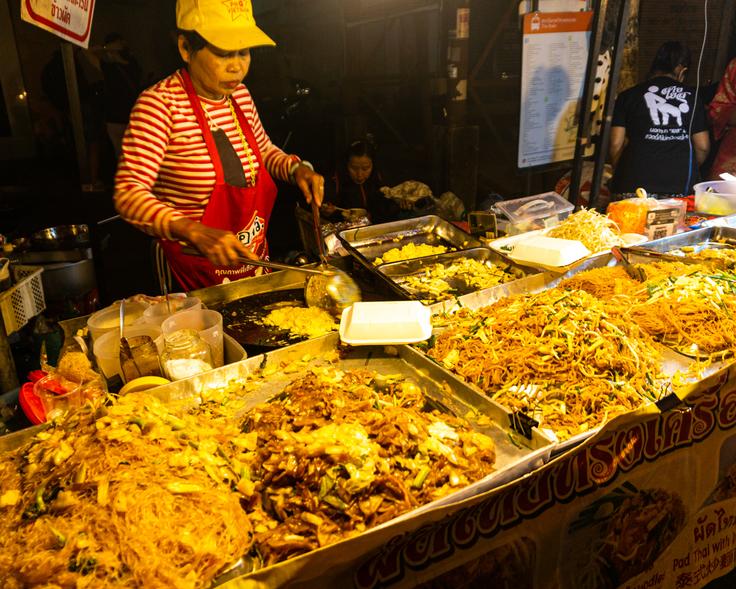
In this post, we will compare Ubud and Chiang Mai in terms of factors such as cost of living, community, visa requirements, health and wellness scene, climate, cultural attractions and many more aspects to consider when choosing one or another destination. Hopefully, by the end, you will have a better understanding of which location might be the best fit for your digital nomad lifestyle.
Chiang Mai, Thailand
Chiang Mai, Thailand is a city located in northern Thailand, renowned for its affordability and welcoming community. We, digital nomads, flock to Chiang Mai for its low cost of living, which allows for a comfortable lifestyle on a modest budget. In other words, to live the dream at a low cost!
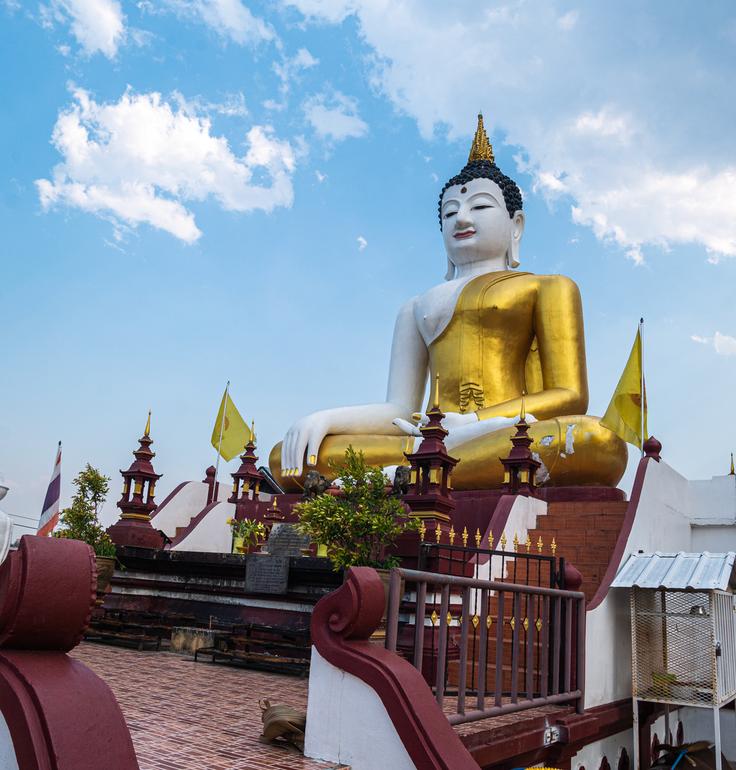
The city provides a wide range of accommodation options, from budget hostels to luxurious apartments, and the food scene is both diverse and affordable. Chiang Mai is also known for its laid-back vibe, making it an ideal place to find a sense of community with fellow nomads and locals alike.
Ubud, Bali
On the other hand, Ubud is a town located in central Bali, known for its stunning rice terraces and lush jungle surroundings. For digital nomads looking to immerse themselves in nature, Ubud is an ideal destination. The town offers a wide range of accommodations, from luxurious villas to budget-friendly guesthouses.

Ubud is also famous for its yoga and wellness scene, offering a variety of classes and retreats for those seeking to prioritise their health and well-being. Additionally, Ubud is known for its artistic community and cultural offerings, with a variety of museums, galleries, and traditional dance performances to explore.

Is Bali cheaper than Chiang Mai?
As digital nomads, we are always on the lookout for affordable yet comfortable places to work and live. Bali and Chiang Mai are two popular destinations for digital nomads, both offering a great quality of life at a reasonable cost.
When it comes to the cost of living, Bali offers a mix of affordable and higher-end options, with budget-friendly accommodations, local markets, and street food. Chiang Mai, on the other hand, is known for its overall affordability, including lower accommodation costs, inexpensive street food, and affordable transportation.

Obviosuly, prices can vary depending on your lifestyle and preferences. As digital nomads we tend to stay on the cheap side of things as we chose to be free of location and therefore our budget is not limited but this is apersonal choice.
In terms of overall affordability, we find Chiang Mai to be cheaper than Bali as there is less Westerner, social media influences and therefore, the cost of living, including accommodations, food, transportation, and entertainment, is generally lower than in Bali.
Accommodation
If we think about affordable accommodation, both Chiang Mai and Ubud offer budget-friendly options.
When it comes to accommodation, Bali has a wide range of options to suit different budgets, from cheap guesthouses to luxurious villas. On average, a single room in a guesthouse or a basic apartment can cost around $200-300 per month.
In Ubud there are tons of affordable guesthouses and homestays, providing an opportunity to experience the local culture at a lower cost. Co-living spaces are also gaining popularity, providing an opportunity to connect with other digital nomads while keeping costs low.
In Chiang Mai, you can find a range of guesthouses, hostels, and budget hotels that cater to budget travelers as well, sometimes offering even more competitive prices than Bali. Chiang Mai's cost of living is sweet!, with accommodation starting at $150 per month for a single room in a guesthouse. Co-living spaces are also available, with prices ranging from $200 to $500 per month.
Comparing prices and availability in both destinations will help you make a more informed decision based on your budget and preferences.
Food and Drinks
Eating out in Bali can be very affordable, with street food and local warungs (small restaurants) offering delicious and filling meals for as little as $1-2. However, western-style cafes and restaurants can be more expensive, with prices ranging from $5-10 for a meal. Groceries in Bali can also be pricier than in Chiang Mai due to the high cost of imported goods.
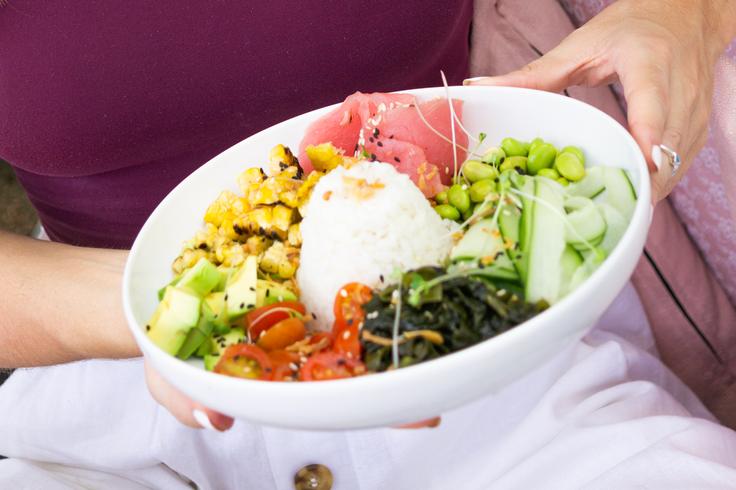
In Chiang Mai, street food and local restaurants are even cheaper than in Bali, with meals starting at $0.50-1. The cost of groceries is also lower in Chiang Mai, with many markets and supermarkets offering fresh produce at reasonable prices.
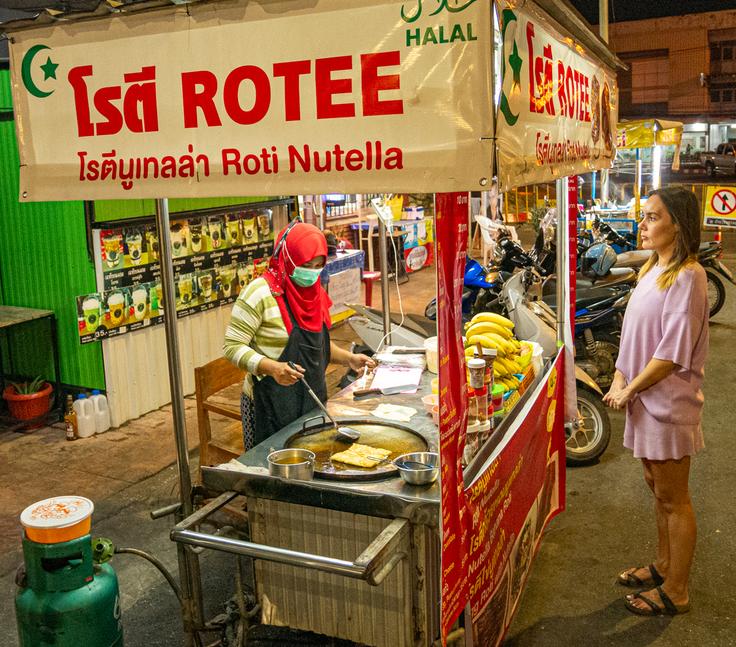
Transportation
Transportation in both Chiang Mai and Ubud can be relatively inexpensive. Bali's transportation options are varied, ranging from taxis and ride-hailing apps to renting scooters or motorbikes. Renting a scooter or motorbike is a popular choice for digital nomads in Bali, costing around $40-60 per month. Taxis and ride-hailing apps are also affordable, with short rides starting at around $1-2. However, traffic in Bali can be congested, especially in touristy areas.
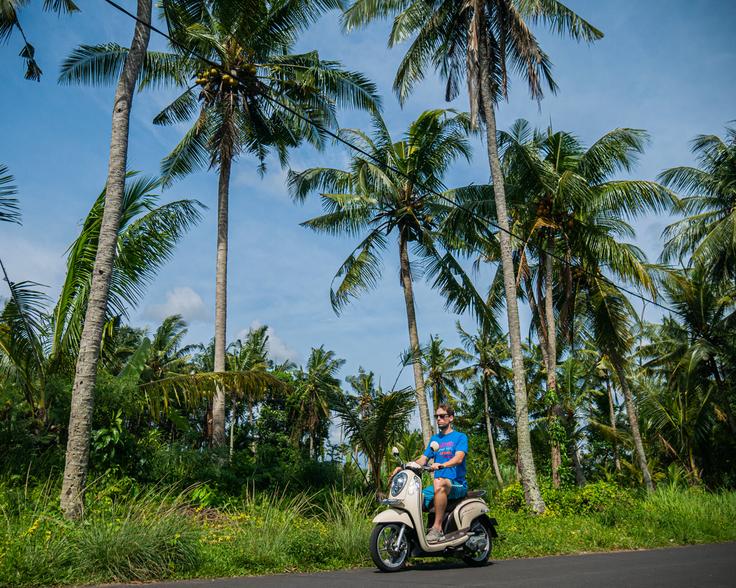
In Chiang Mai, you can navigate the city using affordable options like tuk-tuks, songthaews (shared taxis), and motorbike rentals. Additionally, Grab (ride-hailing service) operates in Chiang Mai, providing convenient and cost-effective transportation, costing around $1-2 per ride.
Both destinations offer accessible public transportation options for getting around the city. However, it's essential to consider factors like traffic conditions, distance, and personal preferences when choosing the most cost-effective transportation method for your needs.
Other expenses
Aside from accommodation, food, and transportation, digital nomads may also incur other expenses such as entertainment, healthcare, and visa fees. Bali has a vibrant nightlife scene, with plenty of bars and clubs to choose from, but prices can be higher than in Chiang Mai. Healthcare in Bali is also more expensive, with private hospitals charging higher rates for medical services.
In Chiang Mai, entertainment options are also available, with night markets and cultural events happening regularly. Healthcare is generally more affordable in Chiang Mai, with hospitals and clinics offering reasonable prices for medical services.
Lastly, visa fees are also cheaper in Chiang Mai, with a 3-month visa costing around $60-70, compared to Bali's $150-200.
The overall cost of living
Based on our personal experience and research, we would say that Chiang Mai is generally cheaper than Bali when it comes to the cost of living. However, the difference in cost may not be significant, and both destinations offer a great quality of life at a reasonable cost.
Bali may be more suitable for those who prefer a beachy lifestyle, while Chiang Mai is ideal for those who prefer a more laid-back and cultural experience.
Why is Chiang Mai so popular with digital nomads?
Community
One of the main draws of Chiang Mai for digital nomads is the sense of community. The city has a large and active community of remote workers, which makes it easy to connect with like-minded individuals.
There are plenty of co-working spaces, meetups, and events where digital nomads can network, socialise, and share ideas. This sense of community can be especially important for those who are travelling alone and want to avoid feeling isolated.

Lifestyle
Chiang Mai offers a high quality of life at an affordable cost. The city has a laid-back vibe, with plenty of green spaces, temples, and cultural attractions to explore. The climate is also pleasant, with warm temperatures year-round. Additionally, the local food scene is renowned, with plenty of delicious and affordable options to choose from.
Infrastructure
Chiang Mai has a good infrastructure for digital nomads. There are plenty of co-working spaces and cafes with fast and reliable Wi-Fi, as well as a good selection of accommodation options. The city is also easy to navigate, with plenty of transportation options available, including tuk-tuks, taxis, and motorbikes.
Proximity to other destinations
Chiang Mai is well-positioned for those who want to explore other parts of Southeast Asia. The city has an international airport with direct flights to major cities in the region, such as Bangkok, Singapore, and Kuala Lumpur. It is also relatively easy to travel to nearby destinations such as Laos, Cambodia, and Vietnam.

Visa and Legal Requirements
Thailand has a relatively straightforward visa process, which makes it easy for digital nomads to stay for an extended period of time. In addition, the country has a well-established legal system, which can provide a sense of security for those who are concerned about the legal implications of remote work.
Health and Wellness
Chiang Mai has a thriving health and wellness scene, with plenty of yoga studios, meditation centres, and health food stores. The city is also known for its affordable and high-quality healthcare, which can be especially important for digital nomads who need access to medical services while travelling.
Language
Many people in Chiang Mai speak English, which can make it easier for digital nomads to communicate with locals and navigate daily life. Additionally, the Thai language is relatively easy to learn, and there are plenty of opportunities for language exchange with locals.
Climate
While both Chiang Mai and Bali have warm and tropical climates, Chiang Mai is generally cooler and less humid than Bali. This can make it a more comfortable environment to work in, especially for those who are sensitive to heat and humidity. Additionally, Chiang Mai has distinct seasons, which can provide a sense of change and variety throughout the year.
Pollution
Bali is known for its traffic congestion and air pollution, especially in heavily populated areas such as Kuta and Denpasar. Chiang Mai, on the other hand, has relatively low levels of pollution, with clean air and open spaces. This can make it a healthier and more pleasant environment to work in, especially for those who prioritize a healthy lifestyle.
Cultural Attractions
While both Chiang Mai and Bali have rich cultural traditions, Chiang Mai is home to many ancient temples, historical landmarks, and cultural festivals that can provide a unique and enriching experience for digital nomads.

Additionally, the city has a thriving arts scene, with plenty of galleries, museums, and theatres to explore. By contrast, Bali is known more for its beaches and natural scenery, which may not appeal as much to those who are interested in history and culture.

Final thoughts
The age-old question of which destination is better for digital nomads, Ubud, Bali or Chiang Mai, Thailand, doesn't have such a clear-cut answer. Both places have their advantages and disadvantages, and the choice ultimately depends on what you're looking for.
That being said, if you're after an affordable, well-rounded, and community-oriented environment with a healthy dose of culture and adventure, then Chiang Mai might be the right fit for you.

